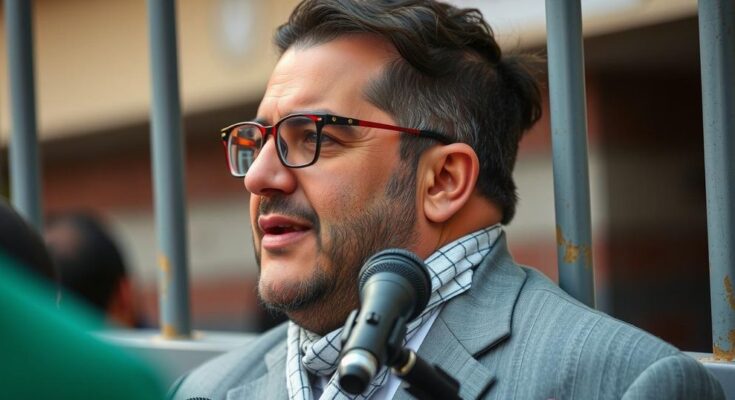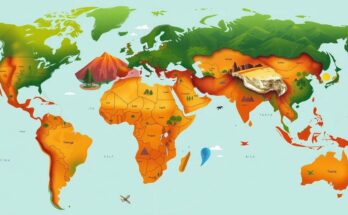Said Ait Mahdi, a Moroccan activist, was sentenced to three months in prison for leading protests against the government’s response to the September 2023 earthquake. His case has drawn significant condemnation from human rights groups, who view the charges as politically motivated. Protests continue due to perceived governmental mismanagement in recovery efforts following the disaster.
Said Ait Mahdi, a prominent Moroccan activist, has received a three-month prison sentence for his role in protests against the government’s response to the devastating earthquake that struck the Al Haouz region in September 2023. Ait Mahdi, president of a leading activist organization in the affected area, faced allegations including defamation, assault, and inciting unauthorized demonstrations. This unprecedented ruling has drawn significant condemnation from human rights advocates who view it as politically motivated and a direct retaliation against his activism.
The earthquake, measuring 6.8 on the Richter scale, resulted in nearly 3,000 casualties and widespread destruction, leading to various forms of protest throughout the affected regions. Demonstrators have accused officials of failing to manage recovery effectively while many continue to live in tents. Ait Mahdi’s attorney noted that his sentence was surprisingly shorter than typical for charges of this nature, and that three other activists facing similar charges were acquitted recently.
The Moroccan Association for Human Rights has called Ait Mahdi’s conviction arbitrary, asserting it stems from his efforts to represent the earthquake victims. Furthermore, a coalition of NGOs and political parties has accused the government of attempting to cover up violations against these victims by targeting activists like Ait Mahdi. In the wake of the earthquake, the Moroccan government has pledged significant financial resources for recovery and rebuilding; however, discontent with the slow progress remains prevalent among communities.
Activist groups continue to mobilize, demanding faster rebuilding efforts. Last month, demonstrations took place in front of the Moroccan parliament, highlighting the dissatisfaction with the pace of reconstruction 16 months post-earthquake. Ait Mahdi has been characterized as “the voice of the oppressed and earthquake victims” by his supporters who demonstrated outside the court during his trial.
This article discusses the imprisonment of Said Ait Mahdi, a key activist who has been vocal about the government’s inadequate response to the September 2023 earthquake in Morocco, which resulted in substantial devastation and loss of life in the Al Haouz region. His sentencing has triggered widespread outrage among human rights organizations and civil liberties advocates, who believe it is a politically charged move aimed at silencing dissent and stifling activism in the face of governmental shortcomings in emergency response and infrastructure rebuilding efforts. The article further explores the socio-political context of the earthquake’s aftermath, emphasizing long-standing regional inequities and the persistent issues related to disaster recovery.
In summary, Said Ait Mahdi’s sentencing has sparked significant backlash regarding the suppression of dissent in Morocco, especially following the tragic earthquake that exposed various governmental inadequacies. The case highlights the delicate balance between civil liberties and state response to activism, particularly in crisis situations. As community protests continue to demand accountability and quicker recovery efforts, the implications of Ait Mahdi’s conviction may resonate beyond his personal plight, influencing the ongoing discourse on human rights within the country.
Original Source: www.thecanadianpressnews.ca




